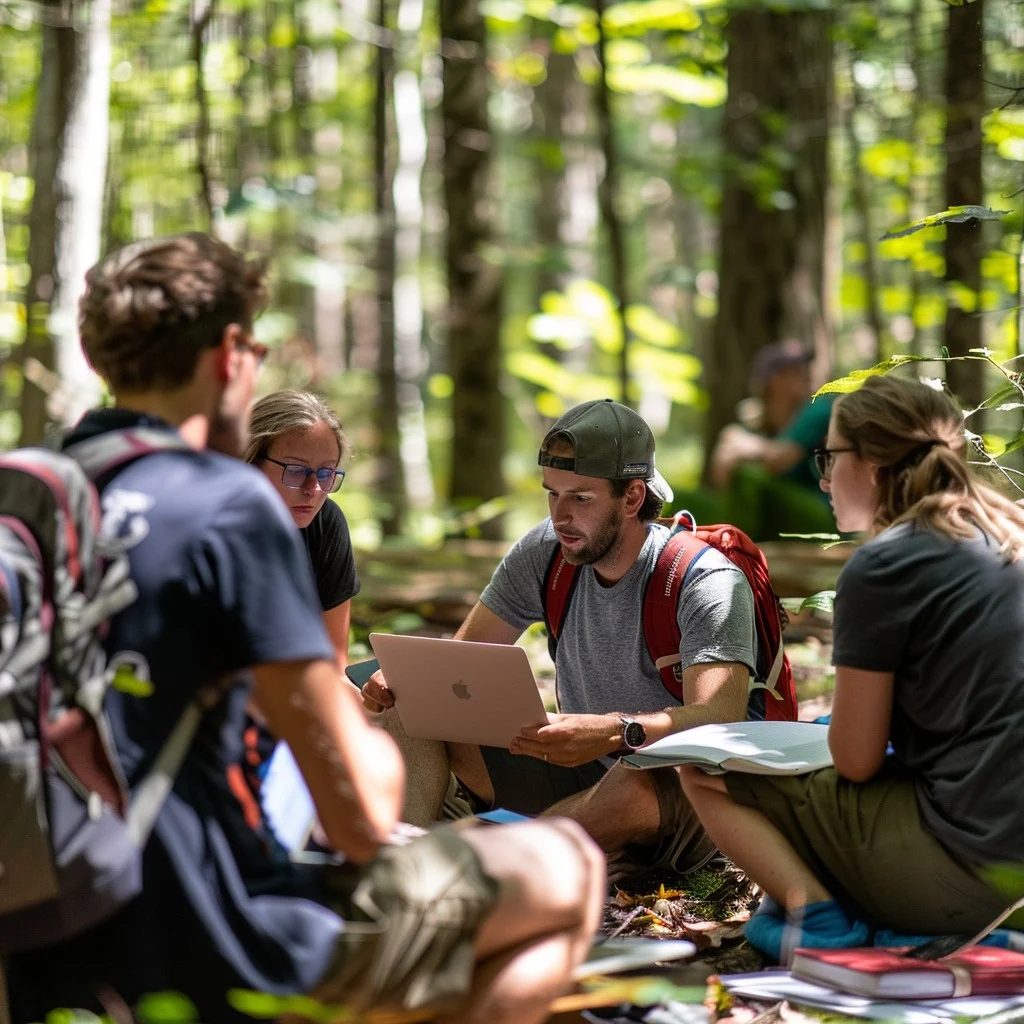
Building a sustainable future for WWII heritage starts with knowledge and collaboration. Through expert-led training, workshops, and peer-to-peer learning, we equip professionals with the skills and strategies needed to integrate sustainability into remembrance tourism. Join us to gain practical insights, exchange experiences, and take action for a more responsible approach to heritage management.
The PPSF Training Programme comprises a series of three in-person Capacity Trainings & Study Visits:
Each workshop focuses on different dimensions of sustainable remembrance practices. The workshops are designed to build on each other with complementary learnings in each one, and are supported by related E-learnings, mentoring and peer learning. Each participating organisation in the PPSF Training Programme must therefore join all three workshops, with the same staff member attending each time to ensure they can follow on build on their learning from each session.
More information about the trainings and the topics covered is available further down this webpage.
In order to make the Training Programme as accessible as possible, there is no cost to participate, however participating organisations will need to cover your own travel and accommodation expenses. For LRE Foundation members, accommodation will be paid for and organised by the project.
Applications are now open! To apply, please fill out this application form, it will take around 5 minutes.
Additionally, as part of the application process we kindly ask you to complete three E-learning courses (45-60 minutes each). They provide an essential introduction of the topics that will be addressed during the workshops and will help you begin your learning journey and commitment to this project. All 3 E-learning modules must be completed by the end of January 2026 at the latest. Please note that LRE Foundation will not be able to fully confirm your participation in the Training Programme until all E-learnings are complete. We recommend you complete these as soon as possible to ensure your place on the Training Programme. To complete the E-learnings click the link and follow the instructions provided: PPSF Training Programme – Preserving the past Securing the future
Sign up now to help us ensure our remembrance sites remain meaningful, resilient, and preserved for generations to come!
Flexible online courses offering in-depth insights and strategies for sustainable heritage practices, accessible anytime, anywhere.
Three comprehensive e-learning modules will first introduce participants to essential concepts and good practices in sustainable management of cultural and remembrance heritage. These modules serve as the groundwork, ensuring that all professionals, regardless of their prior experience, share a common understanding of key sustainability principles. The completion of these modules will be a prerequisite to participation in the trainings.
To complete the E-learnings click the link and follow the instructions provided: PPSF Training Programme – Preserving the past Securing the future
Module 1: Foundations for a Sustainable Legacy
Course Overview: WWII remembrance sites help us reflect on peace, democracy, and the sacrifices of the past. Today, these institutions must also help protect our future — by becoming more sustainable. This course explains what sustainability means, why it matters, and how you can take simple, realistic steps to make your institution more environmentally responsible — without sacrificing its historical mission.
By the end of this course, participants will:
Module 2: People, Memory and Social Responsibility
Course Overview: Sustainability isn’t just about saving energy or reducing waste — it’s also about people. Social sustainability means creating institutions that are fair, inclusive, connected to their communities, and able to adapt to social change. For WWII remembrance institutions, this includes representing diverse perspectives, ensuring accessibility for all, working with local people, and using education to foster peace and democratic values. This module shows you how to put these ideas into practice — clearly and concretely.
By the end of this module, you will be able to:
Module 3: Managing for a Sustainable Future
Course Overview: Economic sustainability is not just about survival — it’s about building a resilient institution that brings long-term value to your community. This course shows you how to strengthen your organisation through smart governance, financial strategies, and sustainable partnerships. You’ll explore how to lead sustainability from the top, create local economic impact, access funding, and build a plan that makes sense for your site.
By the end of this module, participants will be able to:
Expert-led sessions providing hands-on guidance and practical tools to integrate sustainability into WWII heritage management.
Building upon the e-learning, the project convenes a series of three in-person workshops in different European locations. Each expert-led workshop focuses on a distinct dimension of sustainable remembrance practice:
Each workshop includes interactive reflection sessions, peer learning, and the opportunity to showcase and celebrate the most impactful participant initiatives.
Experience sustainability in action by visiting WWII remembrance sites that have successfully implemented responsible tourism and conservation strategies.
Engage with professionals across the sector, exchanging experiences and receiving tailored mentoring to tackle sustainability challenges.
As a final step, the project offers coaching sessions until June 2026 to guide participants in translating their learning into action after these three workshops. This support will help them develop site-specific sustainability strategies and embed lasting change within their organisations.
Participants will also be connected with relevant peers within the training programme participants to facilitate cooperative learning and support for each other beyond the project.
Are you a WWII heritage professional, site manager, researcher, or stakeholder in the remembrance sector? Register your interest to stay informed about our training programs, workshops, conferences, and other opportunities. Signing up ensures you receive the latest updates on how to participate in Preserving the Past, Securing the Future and be part of the movement towards a more sustainable approach to WWII heritage.